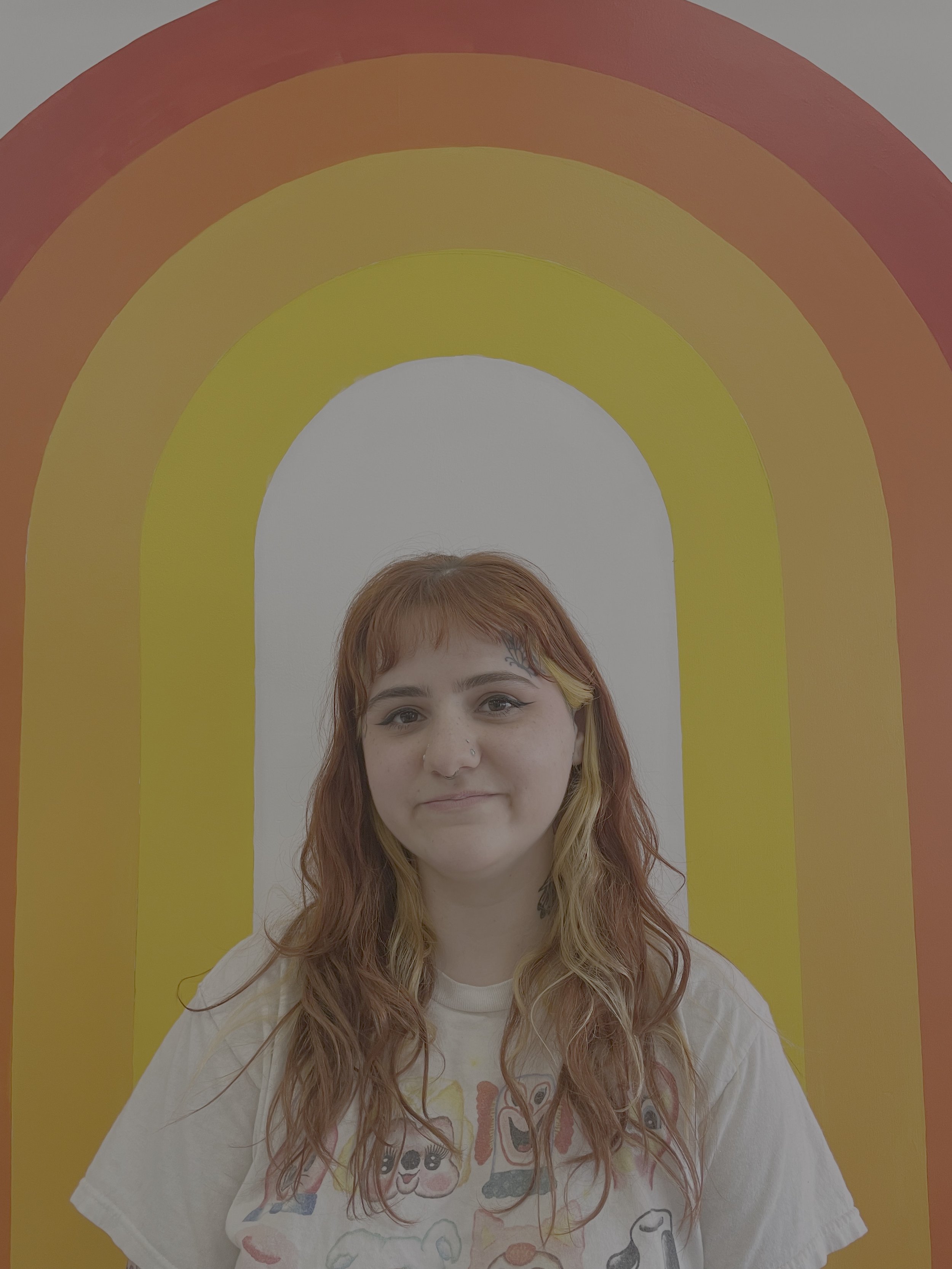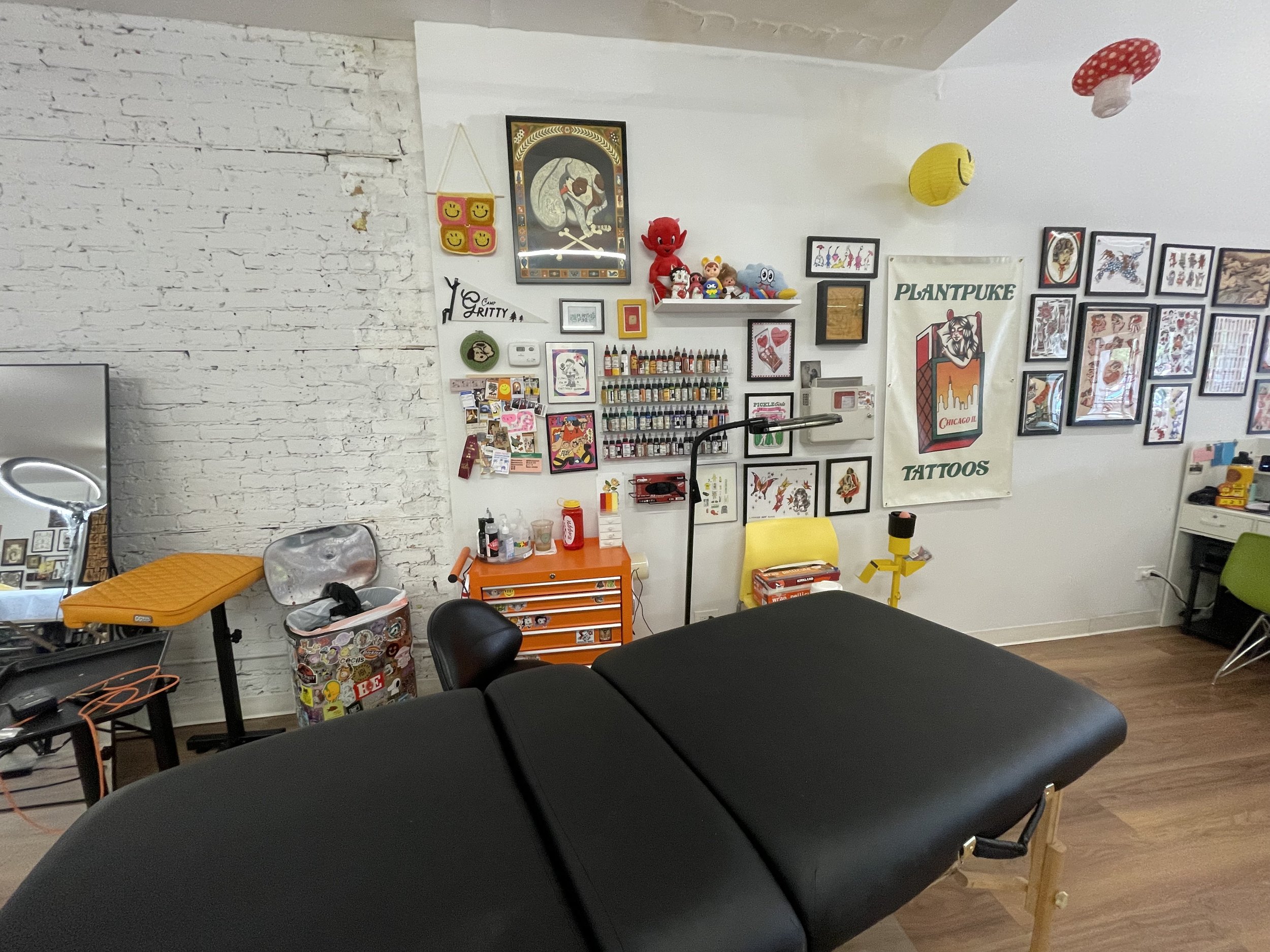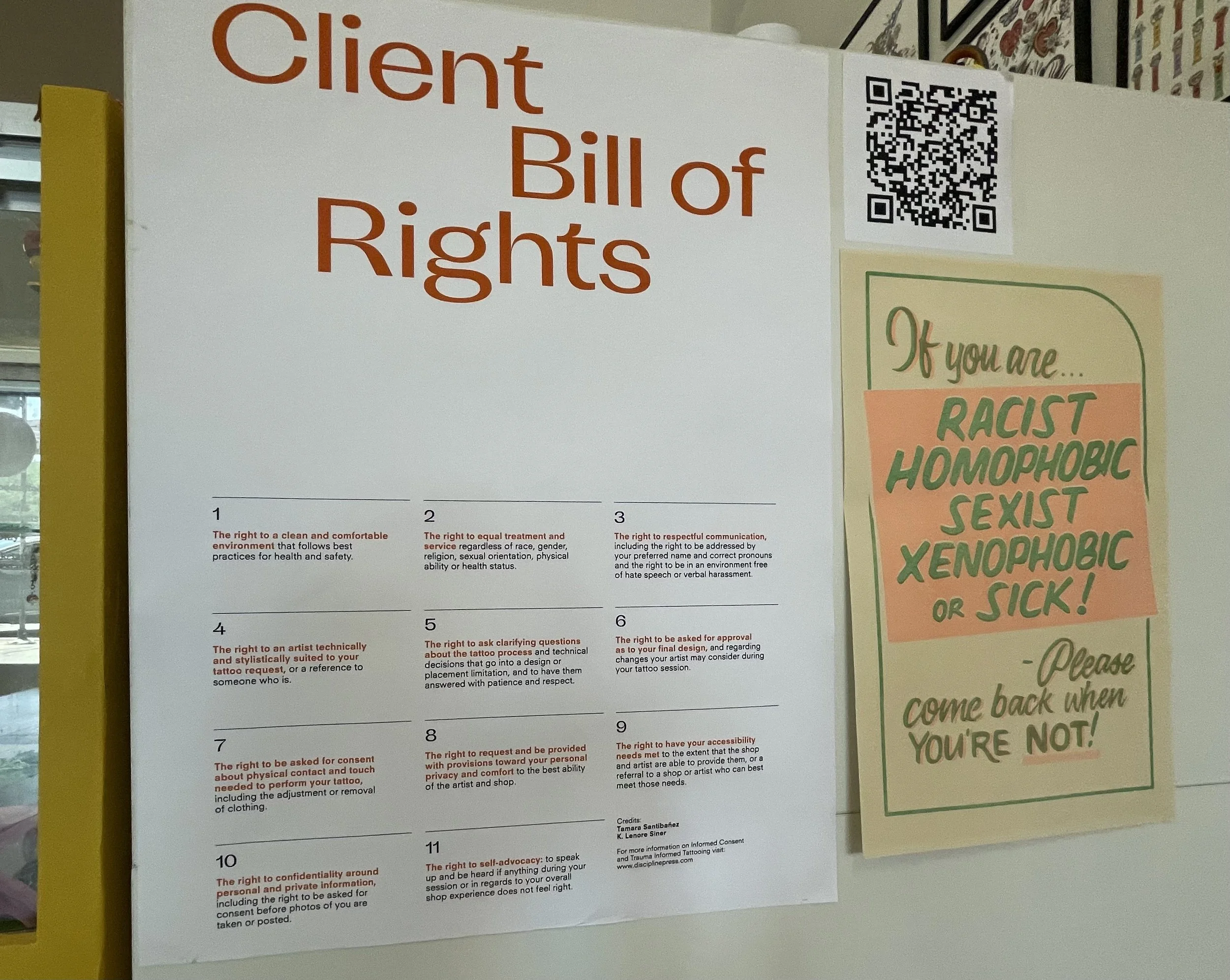Good Mood Tattoo Exemplifies How Women Are Moving Away from Traditional Tattoo Culture
Interview materials are condensed for clarity.
The colorful tattoo shop, decorated with a variety of knick-knacks, is a large open space, quiet with the exception of music echoing through the speakers. “It's pretty crazy how much your drawings on skin can impact people,” said Sophia Bruce, the owner of Good Mood Tattoo in the Pilsen neighborhood of Chicago, as she sits on a white couch littered with colorful throw pillows.
Sophia Bruce standing in her shop Good Mood Tattoo in Pilsen. Courtesy of Isabella Salinas.
“I feel like I've seen both sides of tattooing,” said Bruce, ”I think before I was in the industry, it was scary and male dominated, but that's not how I was brought up in the industry. Like, I got lucky to work at an all female shop, but I know it's not that way for everyone...”
In 2021, 25% of tattoo artists were women and 75% of tattoo artists were men, according to a research study conducted by Zippia.
At Good Mood Tattoo, the staff is heavily female and non-male. Sophia wants to create a safe space for people, and cultivate a community for tattoo artists,even holding non-tattoo related events.
“I feel like being like a young female in the industry, more people similar to me want to work for me, and we've cultivated a safe environment here, which has been really cool.”
Sophia started getting into tattooing when she was really young, first getting tattooed at age 16. Her parents became supportive of her after realizing that she could create a career out of her love for tattoos.
Starting off as a desk girl at a street shop in Nashville, Sophia saw first hand how the inner workings of the male-dominated tattooing space operated.
“It was all older dudes, and I was freshly 18, and they would hit on me and be creepy,” said Bruce, recalling her time at her first job, before she apprenticed at an all-female shop. Working at the all-female shop inspired Sophia Bruce to open up her own shop, especially with her connection to her mentor.
Before coming to Chicago, she started working for her now-mentor in a newer shop as an apprentice at 18 years old. Being surrounded by a new shop and as its first employee there was inspiring, Bruce said.
The shop fell through due to her mentor losing a passion for the tattooing craft, but it became a lesson for Bruce, teaching her what not to do and how to open a shop properly.
Feeling like nothing was keeping her in Nashville, Bruce opened a private studio in Chicago, and subsequently opened Good Mood Tattoo.
“It was kind of, accidentally, the right place, right time, but I feel like it was like years of learning from other people and just feeling like if it was meant to happen, it was now or never. I didn't intend on being like a mostly female shop,” said Bruce.
Sophia’s style of tattooing, as she labels it, is “girly traditional”, mixing her love for traditional tattooing with a more feminine twist.
Sophia’s station in the shop with her signature PlantPukeTattoo tapestry. Courtesy of Isabella Salinas.
“I also do think doing traditional, even though it's slightly girly, helps me cosplay in more male dominated shops, if that makes sense, like because I do a style that is usually done by men, they kind of respect me more than if I want to do, like, fine line,” said Bruce.
Bruce explains how although her shop is majority female run, she likes to guest tattoo at shops that feature mostly male tattooers and/or clientele. She likes the idea of street shops (which are tattoo shops that primarily do walk-ins) and going back to her roots with traditional apprenticeships, just for a little bit.
The internet, more specifically Tiktok and Instragram, have made tattooing more accessible for those that are not necessarily in the tattoo sphere, allowing people to have niche styles and helping younger girls be more comfortable with the world of tattoos.
“It’s (tattoos) have become more socially acceptable, or there's more shops opening up that they (women) feel comfortable in,” said Bruce.
Eight-in-ten U.S. adults say that society has become more accepting of people with tattoos over the past 20 years or so, according to a Pew Research Study from 2021. The study also states that 56% of women ages 18 to 29 have more than one tattoo.
The most rewarding part of her job, according to Sophia, is the connections she makes with people and her community.
“Whether it's someone I meet once for five minutes doing a walk in, or someone I spent hours working on a back piece with. And I think that's what makes me want to do so many community events, it's really about the people,” Bruce says.
The shop hosts non-tattoo community events quite often, and people reach out to Sophia to be featured in the shop’s event space. Most recently, the shop had an event for Chicago Sonny Angel’s two year anniversary, which featured a raffle in which funds were donated to Heal Palestine to provide essential aid to vulnerable families in Gaza.
“I think I've always just been really active in my community,” said Bruce. “ I just hope we become like, a safe space for people… even though we do tattoos here, I like to host non-tattoo events, because it is like a community,” she said.
“Client Bill of Rights” presented at the front desk inside the tattoo shop. Courtesy of Isabella Salinas.
Good Mood Tattoo has been open for less than a year, but has already made a name for itself, opening doors for female and non-male tattoo artists. The shop is a large part of the community in the Pilsen neighborhood and leaves a mark on everyone who walks through the doors.
With the growing number of female tattoo artists, tattooists like Sophia are shaking up the traditional ideas of tattoo culture, prioritizing connection in their field.
“I think people just want to be seen and respected and feel a connection with the person and the art that's going on their body forever,” said Bruce.



